How does it feel to accomplish 250km ultramarathon in 7 days – in Sahara Desert?
Speaking of marathon, the first thing that comes to most of you might be the 42km races that originated from ancient Greece and are now held worldwide. Running for 4 or 5 hours in cities with moderate climate and smooth road is already a challenge for most people.
What about a one-week adventure in deserts?
On April 3, Frederic Luu, our sales VP for Europe, accomplished the hardest race in the world – the Marathon des Sables in Moroccan Sahara Desert.
This ultramarathon, also known as the Sahara Marathon, took place from March 25 to April 4, though the actual race started on March 28 and ended on April 3. During the seven-day adventure, runners were expected to finish about 250 km, which is approximately the distance of six regular marathons.
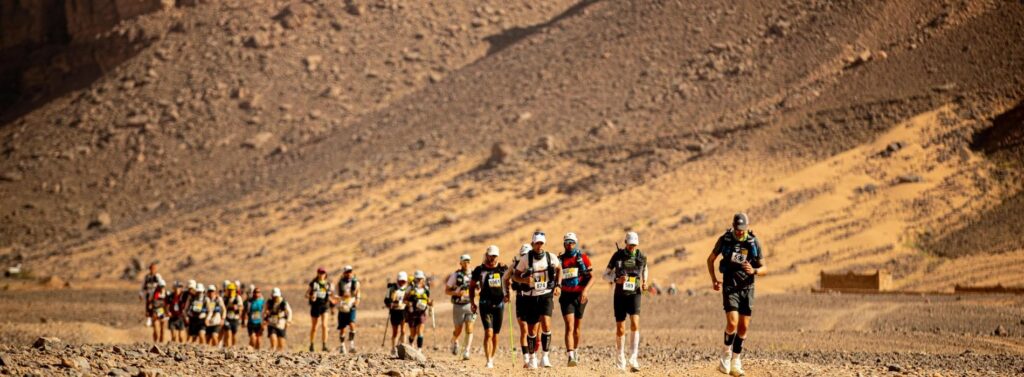
It’s already very hot in Sahara Desert, with a mean daily temperature reaching 30°C. The course for runners was extremely tough: lots of sand, huge djebels up and down, strong heat, and violent gusts of wind sweeping the course and the bivouac.
And each participant is expected to carry their belongings on their back while running – which weighs about 10 kg, including food, whatever is needed for a week of racing and sleeping in the desert (without showering of course).
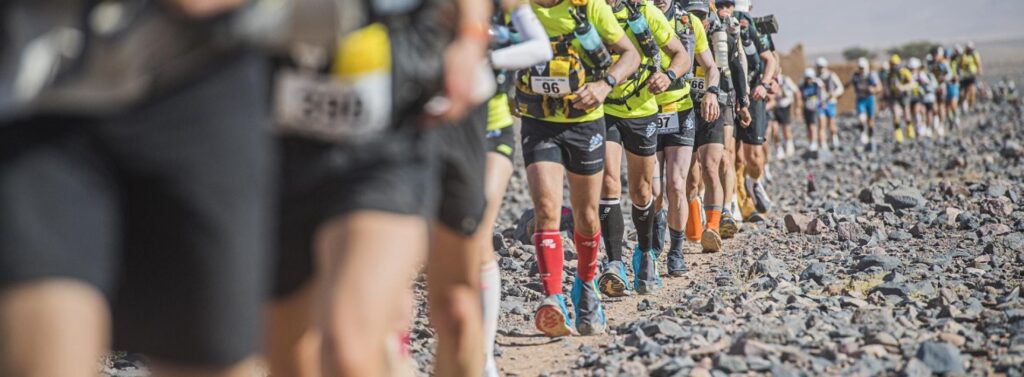
Sounds like hell? Yet nearly 1000 runners from more than 50 countries signed up for the game. Frederic was one of them.
Frederic is a marathon runner, who has been running marathon since 1998. He has run 7 road marathons and some ultra-marathons including a night race in the snow called La Sainté-Lyon.
“I have been running for years, including long runs, long trails, ultra-marathons. A friend suggested this to me in 2019. I did accept it. It is a sportive event, but it is a ‘people’ adventure first.” said Frederic.
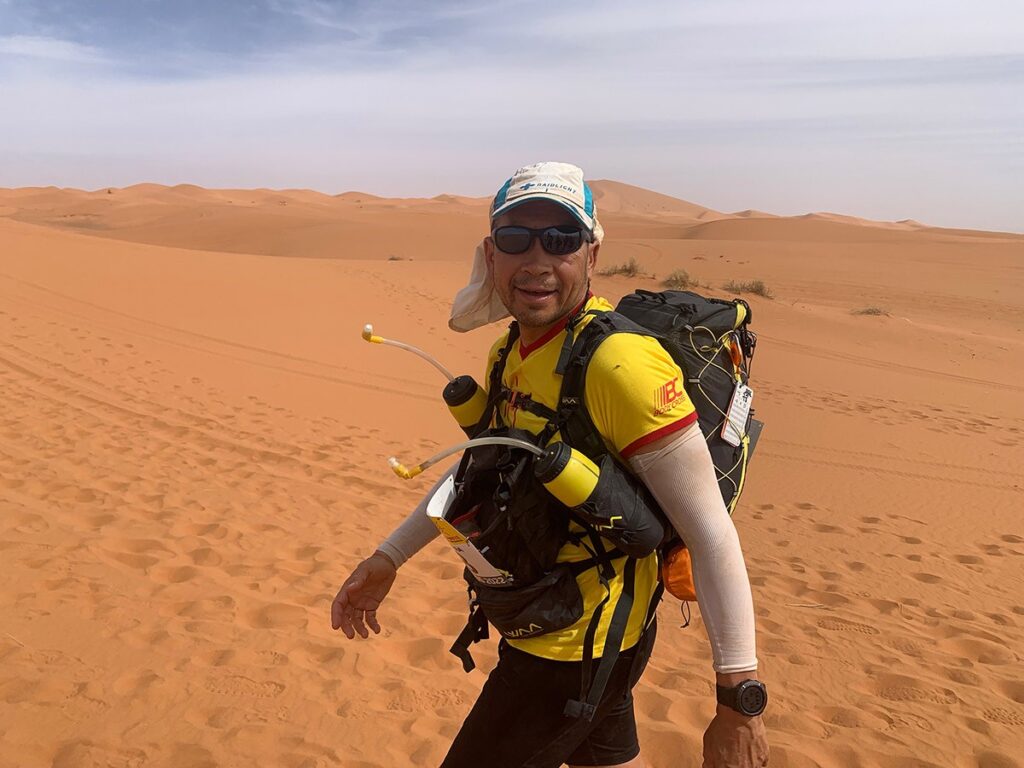
The tough journey was continuously weeding out participants. In Stage 1 there were 908 runners, with a few registrants excluded due to positive PCR test on entry to Morocco, injuries, illnesses, etc. On the second day there were 895 left.
“Challenge came when we just started. It was 30°C. My backpack was 11.5 kg. I thought, wow, it is to be a bit long 250K like this.” Luckily, Frederic quickly got used to the conditions, thanks to his long-time training and the 12-week special program before the event that helped build a strong physical capacity.
The longest single stage came on the fourth day, with 86 km, equivalent of two regular marathons. It took more than 15 hours for most runners before they arrived at the destination.
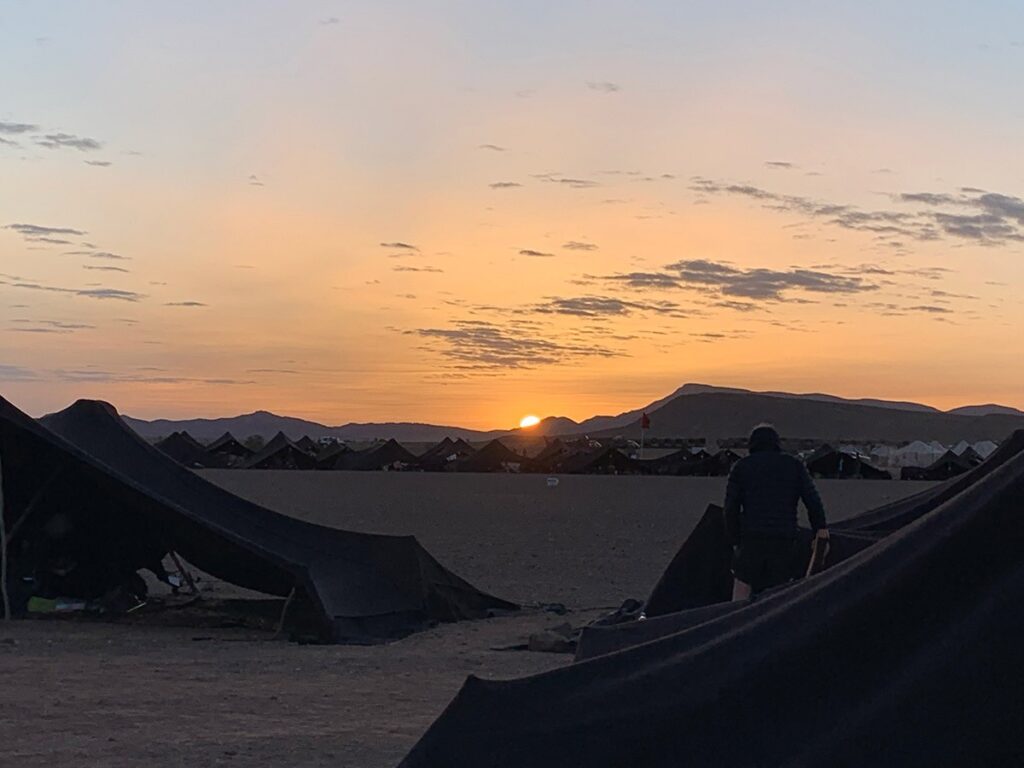
Despite incredible difficulty, Frederic and his team kept taking photos of the unique desert landscape along the way. “I must admit I did enjoy most of the time. I did not have any injury.”
The 6th Stage was dedicated to solidarity, which did not count for the general classification but was compulsory and required collaboration between team members.
With extraordinary fitness, sufficient preparation and great team spirit, they made it!
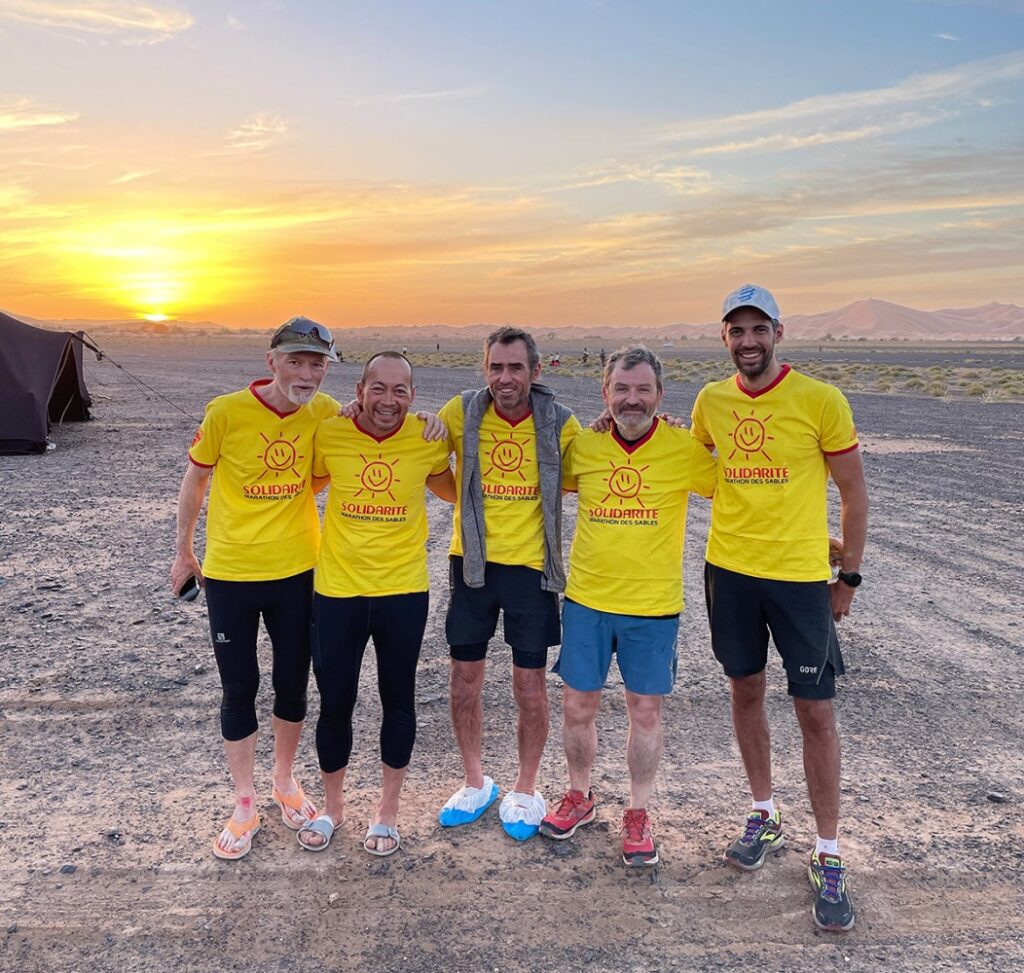
“I was very happy with the accomplishment, but I was also very happy all the members of my tent (137) were able to go until the end. I was hoping I would remember all the fantastic landscapes could see.”